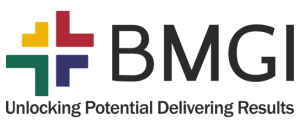Innovation and organic growth isn’t about having great ideas (although you need them). It’s about developing the best ideas into new designs that customers want—yet this is where most companies fail. While most companies demand innovation, they’re just not good at making it happen.
This is where BMGI’s Rapid Innovation Event can help—a structured, end-to-end process for creating new products, processes and business models. First, we help you uncover and properly define the real problem at the heart of your innovation challenge. Then, we help you scope the problem, refine it and design it for implementation—in a fraction of the time it takes most to do this, and with greater confidence of success.
BMGI principals and consultants will address these questions in a provocative workshop environment. As “researchers of the research,” they’ll summarize the state of the art on innovation from leading academicians, thought leaders and practitioners. And they’ll show you what front-running companies are doing to foster and spread innovation capability across all functions and processes.
Driving organic growth is one thing. Driving it and realizing it on a large scale and sustainable basis throughout a corporation is quite another. Greg Frazier – Executive Vice president – Avnet, Inc.
Developed by the authors of The Innovator’s Toolkit: 50+ Techniques for Predictable and Sustainable Organic Growth (Wiley), Rapid Innovation Events lead teams through a systematized process known as “D4” (Define-Discover-Develop-Demonstrate). Each step takes concentrated time and involves the intelligent application of techniques to get people thinking outside the bowl, and to interrupt individual and team inertia.
On the management of human talent, your facilitators will discuss cognitive models for problem solving and zero in on the adaption-innovation cognitive style to discuss how to build high-performance, collaborative teams. They’ll also discuss how organizational climate and culture impacts innovation.
When this onsite event is completed with your team (after six to ten weeks), you’ll be in a position to pilot or prototype your solutions, then implement them to realize your growth objectives. In the process, you’ll have learned how to apply such powerful inertia-shifting techniques as jobs to be done, outcome expectations, innovation financial management, heuristic redefinition, Pugh matrix, design scorecard and many others.
Team leaders (and certain members) who engage in this event will also acquire the knowledge and skills they need to begin running Rapid Innovation Events themselves and spread structured innovation throughout their organizations.
Expected Event Outcomes
- After engaging in this event, participants will:
- Increase the probability that their new products, services, processes and business models will succeed in the marketplace.
- Solve their innovation problems better than competitors.
- Improve the financial return from their innovation investments by increasing the knowledge-to-assumption ratio.
- Become capable of replicating Rapid Innovation events throughout their organizations.
- Possess a clear process for systematically innovating across multiple processes, functions and organizational levels.
